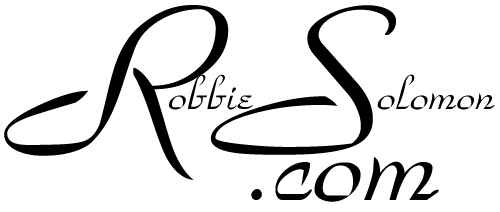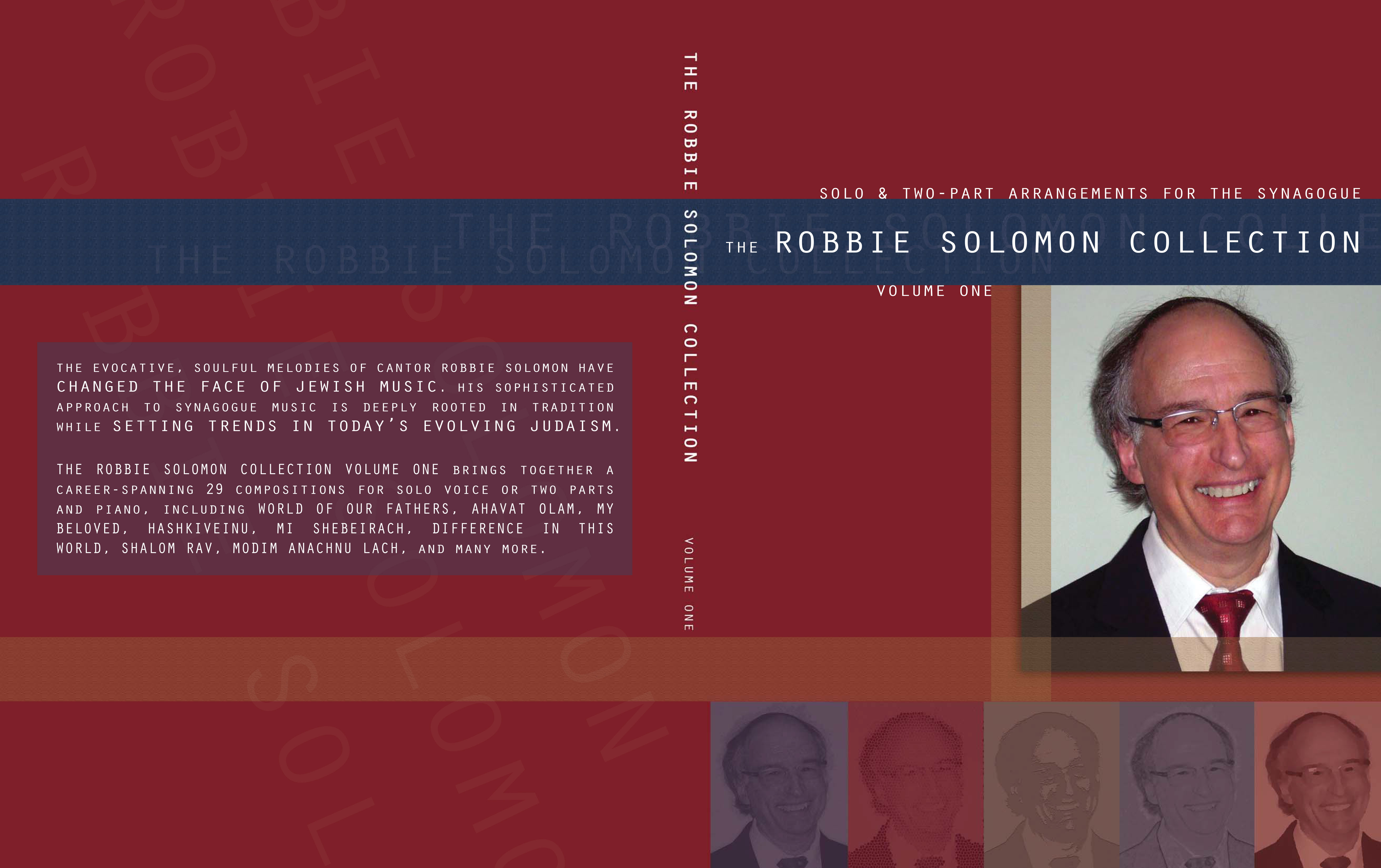Forever Blessed Songbook
A collection of 29 solo and two-part compositions
A collection of 29 solo and two-part compositions, the Forever Blessed digital songbook contains full piano accompaniment as well as some optional cello and clarinet parts.
Included in the collection are some of Cantor Solomon’s most beloved songs—World of Our Fathers, Hashkiveinu, Mi Shebeirach, My Beloved and many more. In addition to the songbook is a recording of 12 selected songs.
The music of a Jewish service brings an extra dimension to the worship experience. A cantor’s voice, a choir’s harmony, a congregation’s spirited singing, all lend richness to the powerful words of our tradition. In this collection of settings for solo voice and two-part singing are songs that stretch the listener’s ear and songs that seem comfortably familiar. There are concert pieces as well as melodies for the congregation to join in singing.
Recognizing that not every occasion calls for a choir, the settings in this volume can be performed with a minimum of forces — one or two voices with a piano or guitar.
Recordings of many of the other songs can be found at OySongs under my name or Safam.
Please enjoy the music!
Warmly,
Cantor Robbie Solomon
AHAVAT OLAM, a joyous celebration of God’s unending love for us, was written for Temple Neve Shalom of Portland, OR on the occasion of their 130th anniversary. Here it is set as a simple arrangement for two-part choir and cantor.
AMAR RABI ELAZAR, a Talmudic passage traditionally chanted in the Sabbath morning liturgy, states that “students of torah increase the level of peace in the world”. Recognizing the competitive nature of Yeshivas, this setting imagines a duel between the two rabbis sited in the passage: Rabbi Chanina and Rabbi Elazar. It should be performed with humorous interplay between the two singers, in ironic contrast to the message of the text.
BASHEIRT — “It was meant to be.” This song was written for my mother Shirley Solomon (z”l) when she was terminally ill. A child’s attempt to comfort a dying parent serves to soften his own grief.
B’TZEIT YISRAEL — “When Israel went forth from Egypt” comes from the Hallel service. The music invokes the wonderment of the Israelites as they beheld the miracles at the Red Sea. It is recorded on Safam’s Greatest Hits vols. 3 & 4.
BUILD ME A HOLY PLACE was commissioned by the Larchmont Temple of Larchmont, NY for the dedication of the new sanctuary. It includes three Biblical passages which are found on the walls of the temple. This celebratory setting is intended to bring many parts of the congregation together with children and adults singing, percussion instruments, and clapping.
DIFFERENCE IN THIS WORLD is a two-part choral work originally written for youth choirs. It was inspired by the words of Maya Angelou and celebrates the diversity of our world, wondering why it has to be a source of conflict rather than a source of joy.
EITZ CHAYIM from the Torah service is my well-known choral setting here reduced to solo voice. It was written for the dedication of a new Torah for Temple Sinai in Sharon, MA.
FOREVER BLESSED, the title piece from this songbook, was commissioned by Cantor Fredda Mendelson as a gift to her rabbi, Jeffrey Sirkman, for his son Gabriel’s Bar Mitzvah.
HASHKIVEINU is the evening prayer which is most like a classic lullaby. It recounts the terrors that we imagine can occur while we sleep and pleads that God protect us and bring us safely through the night to awake in peace.
HAVU LADONAI — Psalm 29 is a psalm sung during the Kabbalat Shabbat service and when the Torah is carried around the sanctuary in the morning. The words describe a God of infinite power whose voice can turn back the waves and break the cedars of Lebanon. The music reflects that bravado.
HINEI EL YESHUATI is the prayer that opens the Havdalah service which separates the Sabbath from the weekday. After the Sabbath rest refreshes us we look for strength to carry us through the week: “God is my deliverer; I trust in You and I am not afraid.”
HODO AL ERETZ is another selection from the Torah service, written for the dedication of a new sanctuary at Temple Beth-El, Northbrook, IL.
KEDOSHIM TIH’YU is from Leviticus Chapter 19, known as the Holiness Code. This simple but sweet setting can be used to accent the d’var Torah given on this portion every year.
KIDDUSH is a setting from the Neve Shalom service, Zimrat Shalom (see Ahavat Olam). It is a majestic solo with congregational responses.
L’CHA ADONAI/ROM’MU for the Torah procession (hakafah) written for the dedication of the new sanctuary at Temple Beth-El, Northbrook, IL is a flowing adaptation of the text: “Yours is the power, the glory, the victory and the majesty; for all that is in heaven and earth is Yours.” The second part is a joyous dance.
MAH TOVU is from Zimrat Shalom (see Ahavat Olam). The opening prayer of many services, it is both participatory and musically evocative of the beautiful blessing: “How lovely are your tents, O Jacob, your dwelling places O Israel!”
MI SHEBEIRACH is a solo version of the prayer for healing heard on Safam’s In Spite of It All.
MODIM ANACHNU LACH for two voices is a prayer of thanksgiving for all we have received–the big gifts and the little miracles we encounter every day, morning, noon, and night, “O God, we can always count on You.”
MY BELOVED is a wedding song which references the verse from the Song of Songs, “I am my beloved’s and my beloved’s mine.”
REMINISCENCE is the recollection of a Holocaust survivor about his former life in Europe. In it I imagined the thoughts of my beloved teacher, Cantor Gregor Shelkan (z”l) who survived four years in Auschwitz before coming to Massachusetts to serve Congregation Mishkan Tefilah of Chestnut Hill. It is the last piece in the three-part musical drama Photo Album from Safam’s Greatest Hits vols. 3 & 4.
SHALOM RAV is a jazz duet with a sultry Latin beat–a very different setting for this prayer of peace.
SONG OF SONGS, an early composition written to the words of the biblical love poem, is a solo piece written to a Bossa Nova beat. It can be sung at a wedding or for the holiday of Passover when the Song of Songs is traditionally read.
TZEDEK TIRDOF, the famous injunction from the Torah portion Shoftim–“Justice, justice shall you pursue!” is a duet commissioned by Cantor Donn Rosensweig of Andover, MA for the Bar Mitzvah of his son Daniel. Father and son sang it at the service. It is a dialogue on the nature of justice.
V’AHAVTA is a setting of the first paragraph of the Sh’ma, Deuteronomy Chapter 6, verse 5, and following. It contains a bit of vocal gymnastics for a cantor, who must maintain his or her intonation until the piano or piano/strings enter.
VAY’CHULU, another selection from Zimrat Shalom (see Ahavat Olam) is a cantorial solo that has some surprising harmonic twists. It is a setting of Genesis Chapter 2 verses 1-3, which is part of the Friday night liturgy.
V’SHAMRU is a two-part choral setting of the prayer that describes the Jewish obligation to keep the Sabbath. Its minor mode is evocative of the restful Friday evening mood.
WEDDING BLESSING NO. 7 is a setting of the last and most joyous of the Sheva Brachot chanted at a wedding. Its lilting melody for “the voice of the bridegroom and voice of the bride” lifts the spirit and provides a wonderful finish to that part of the ceremony.
WINGS OF LOVE was written for the baby naming of my son, Samuel Zachary.
WORLD OF OUR FATHERS from Safam’s third recording Sons of Safam, is a composition written after collecting the stories of many of my friends’ grandparents in their emigration to America at the beginning of the last century. It is a story of the immigrant’s experience that has been repeated with each new arrival to this land of opportunity.


